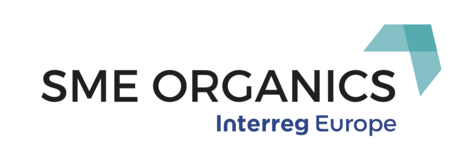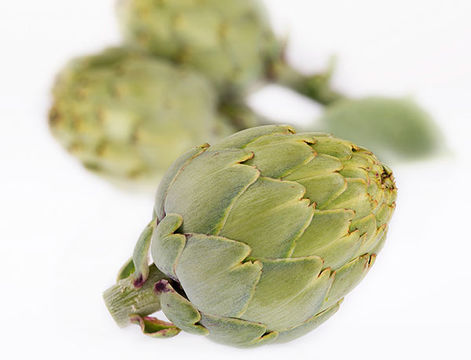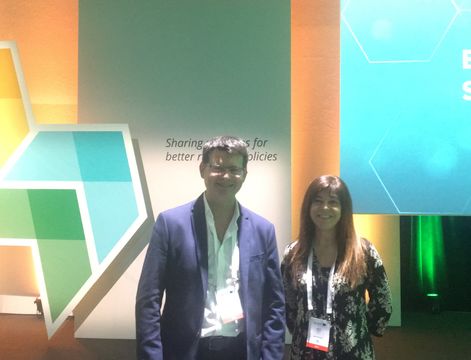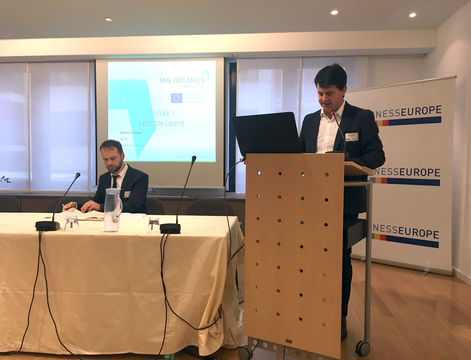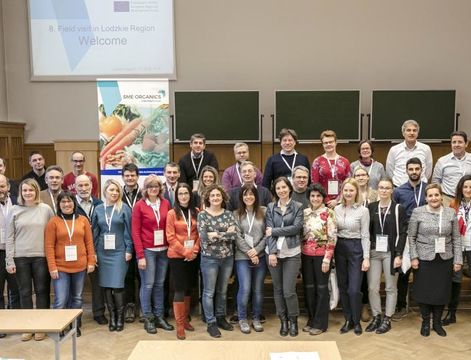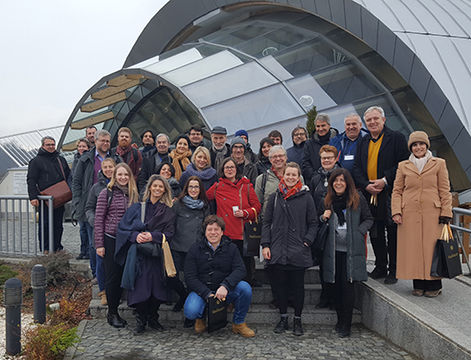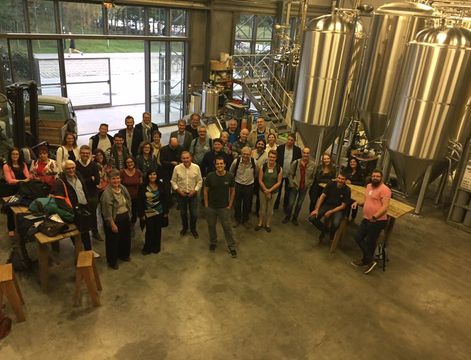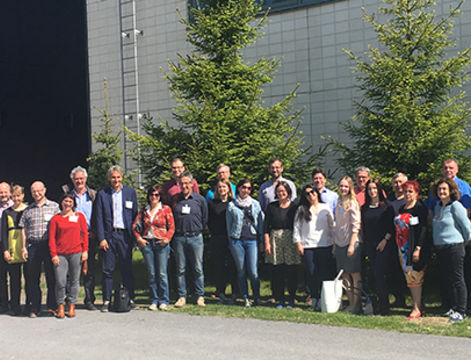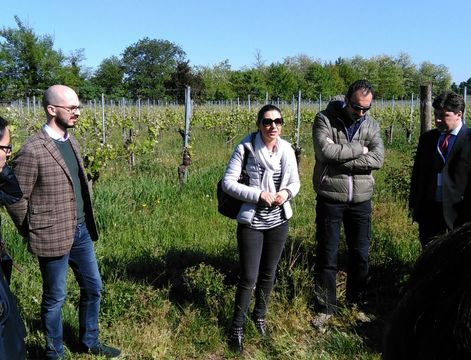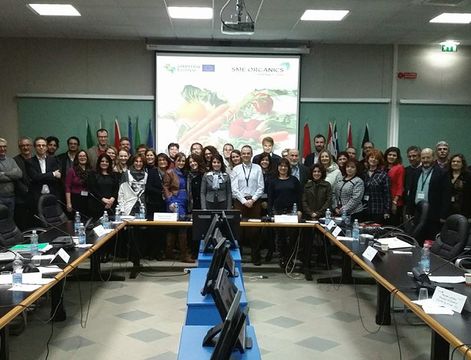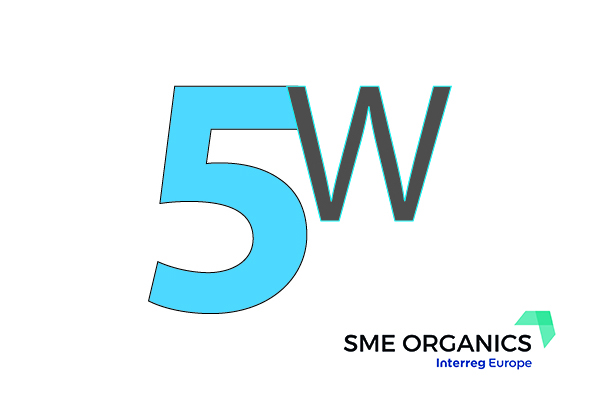The seventh inter-regional visit of SME Organics took place in Cluj-Napoca, in the North-West Region of Romania on the 28th – 29th of November, hosted by the North-West Regional Development Agency.

It was aimed at promoting successful experiences, policies and programs supporting the organic sector in the North-West Region. It involved 47 participants, among stakeholders and representatives of the 11 project partners from 7 European Countries (Belgium, Switzerland, Spain, Finland, France, Great Britain, Italy, Poland and Romania). The 2 days program included plenary sessions sharing experiences and best practices examples, workshops and field visits to producers and processors from the North-West Region organic value chain.
Romanian good practices shared by local stakeholders
The plenary session on the 28th of November initiated with a short presentation of the organic sector in Romania and in the North-West Region, accompanied by the education and research expertise in the field, provided by the Cluj-Napoca University of Agricultural Sciences and Veterinary Medicine. Two Romanian best practices were presented by two local stakeholders:
 Ovidiu Pintea from Optima Group, Cluj IT Cluster, with the on-line platform Târgul Agro, a marketplace for agricultural products meant to put together supply and demand.
Ovidiu Pintea from Optima Group, Cluj IT Cluster, with the on-line platform Târgul Agro, a marketplace for agricultural products meant to put together supply and demand.
Felix Arion, the manager of AgroTransilvania Cluster – an association of 70 member organizations comprising agri-food producers, traders, processors, cooperatives, who together, under the umbrella of Transilvania Acasă sell local products in supermarkets.


Organic Action Plans – presentations, implementation planning, monitoring and evaluation
The drafts of OAPs from North-West Region of Romania, Lombardy Region from Italy and Lodzkie Region from Poland were presented to the audience, including main aims, objectives and proposed measures for the further development of the organic food and farming sector.
The three drafts OAPs were followed by the presentation held by the Organic Research Center expert Nic Lampkin, who shared to the project partners a few key issues to be approached when implementing, monitoring and evaluating the OAP.

Best practice matchmaking session
The plenary session on the 28th concluded with a best practices matchmaking session moderated by Ioana Dragoș from the NW RDA, with the aim to deepen other partner regions’ successful examples, for an interregional know-how exchange. The high interest from the participants turned the session into an interactive one, with 5 countries sharing 12 local best practices.
STUDY FIELD VISITS
Early morning on the 29th of November, partners and stakeholders went on a bus trip, an hour away, near Cluj-Napoca, to the Turda Salt Mine where the day kicked off with a guided tour of the Salt Mine, where the beneficial and curative aspects of salt were presented.

 CIA ABOLIV – inside Turda Salt Mine, a local meat production company, founded in the 90s, a plant financed from SAPARD pre-accession funds, best known under 2 brands: BRIO and APETIT, have their latest range of products, the Salinated, kept to ripen without any chemicals or additives inside an old salt gallery.
CIA ABOLIV – inside Turda Salt Mine, a local meat production company, founded in the 90s, a plant financed from SAPARD pre-accession funds, best known under 2 brands: BRIO and APETIT, have their latest range of products, the Salinated, kept to ripen without any chemicals or additives inside an old salt gallery.
 LUNA SOLAI- known for their cold pressed oils, produced in the heart of Transylvania, founded in 1998, a small family company with only 7 employees produce a range of several seed based oils, including organic, such as rape seeds, hemp, sunflower, pumpkin, flax seeds and walnuts.
LUNA SOLAI- known for their cold pressed oils, produced in the heart of Transylvania, founded in 1998, a small family company with only 7 employees produce a range of several seed based oils, including organic, such as rape seeds, hemp, sunflower, pumpkin, flax seeds and walnuts.
 CASA BIO – the biggest and oldest store of organic, bio products from Transylvania, located in the middle of Cluj-Napoca city. “The Apiary” as they like to call themselves, offer also a wide range of beekeeping products, locally produced and organic, from several types of honey, to royal jelly, pollen and different combinations based on local bee products. A training and tasting session was held in the premises, for the participant partners and stakeholders.
CASA BIO – the biggest and oldest store of organic, bio products from Transylvania, located in the middle of Cluj-Napoca city. “The Apiary” as they like to call themselves, offer also a wide range of beekeeping products, locally produced and organic, from several types of honey, to royal jelly, pollen and different combinations based on local bee products. A training and tasting session was held in the premises, for the participant partners and stakeholders.
